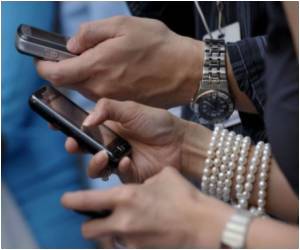Smartphones have made checking after hours e-mail much easier.

That way, she can better practice what her employer preaches and stop checking her emails after hours.
"Before, I would take my computer home," Klippel, 26, told AFP. "I would pull up my emails to check things, or knock off a few extra emails while watching TV or cooking dinner. I don't do that anymore."
Americans have a reputation for seeing work as a virtue in itself, but with technological progress shaking up the work-life balance like never before, some employers are taking action.
In September, Klippel's employer The Advisory Board Company imposed an "email moratorium" over the three-day Labor Day weekend on its 1,850 employees from the top brass on down.
"I found myself looking at my iPhone and ready to respond, but I told myself, 'No, let it go'," said chief executive Robert Musslewhite, who has since issued guidelines to curb after-hour emailing.
Advertisement
"That's the part we really want to tackle," he said. "There's some part of email that has gone too far and that is now impeding productivity."
Advertisement
Juggling emails or taking phone calls after hours adds up to an extra month and a half of work every year, according to a study by software developer Good Technology.
Outside the United States, some major corporations such as French IT services group Atos have virtually banned emailing once employees have clocked out for the day.
"There is a growing sentiment that email is not very productive, and actually decreases productivity," said Gwanhoo Lee, an associate professor of information technology at American University in Washington.
"A typical manager receives hundreds of emails a day, and that consumes a substantial amount of work hours."
Some organizations are trying to move away from email in favor of instant messaging or social media, added Lee, who has worked with several major corporations.
Nevertheless, "many organizations are still expecting their employees to check their emails even over the weekend or when out of town," he said.
According to a study by the Society for Human Resource Management, hardly one company in five has an email policy -- and out of those, only one in four aims to strike a balance between professional and private lives.
Judith Glaser, founder of consulting firm Benchmark Communications said many employees are consumed by emails because they are driven by a need to feel part of an organization.
Workers not copied on an email, she said, may suspect an indirect signal from their bosses that "you are not important anymore in the decision process," she said.
The secret is to discuss the expectations of each employee and enable them to plan to take time off, free of email, "without being stressed," she said.
For Klippel, the ability to draw a firm line between her working and personal life has been a very positive change. Now she can go out with friends or cook dinner without interruption.
"If you're sending emails in the middle of the night, people start to worry about you," she said. "It's encouragement for you to shut down."
Source-AFP








